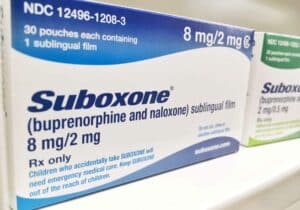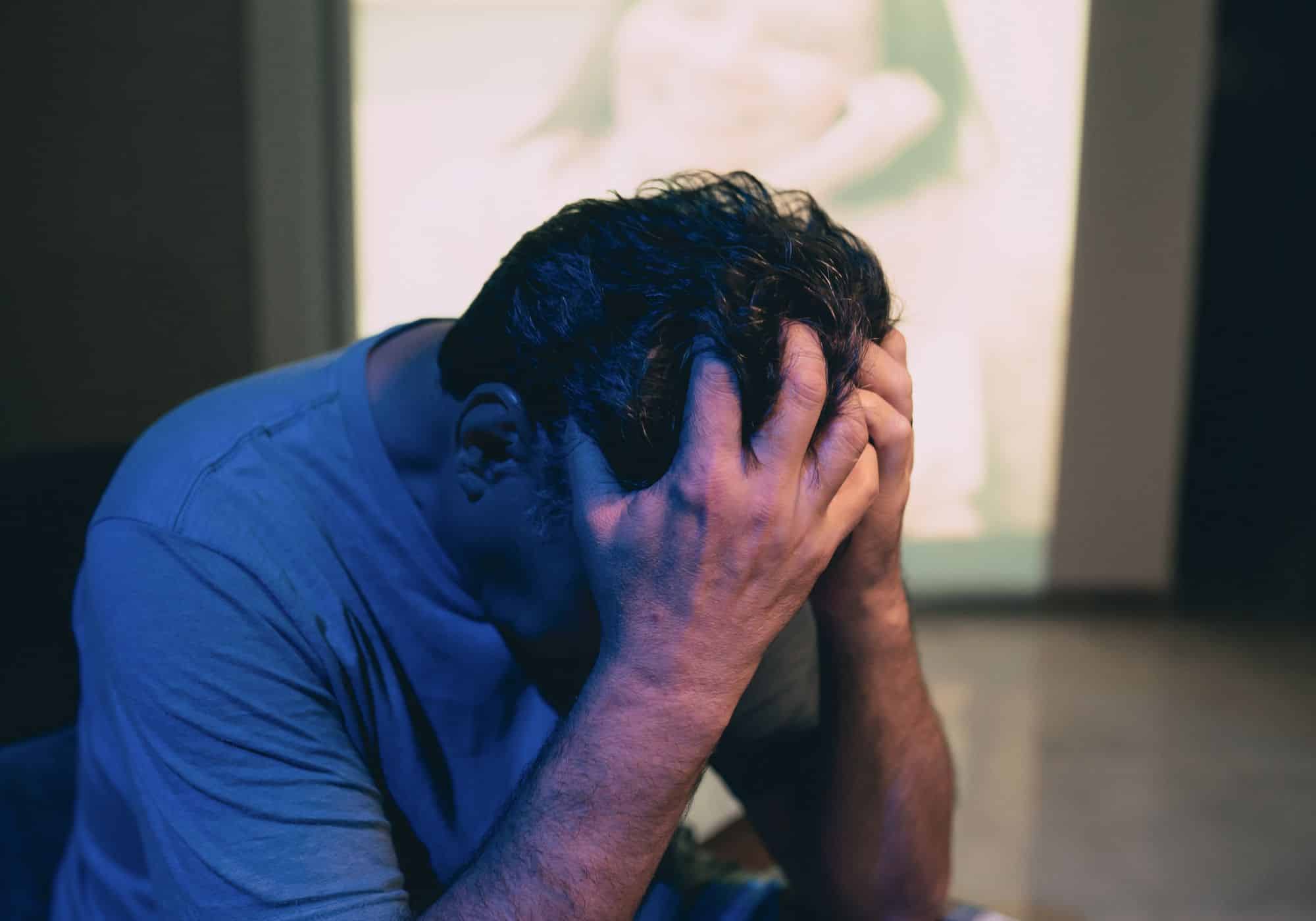Can You Overdose on Benzos?
It’s a serious concern that overdosing on benzodiazepines, often referred to as benzos, is not only possible but also increasingly common. Recent data indicates a worrying trend: there was a 42.9% increase in benzodiazepine-related overdose deaths between 2019 and 2020. This includes a dramatic 519.6% rise in overdoses from illicit benzos and a 21.8% increase in prescription benzodiazepine overdoses.
These statistics underline the urgent need for heightened awareness and caution around the use of benzodiazepines, whether they’re prescribed or acquired illicitly. Both users and healthcare providers need to understand the risks these drugs carry to prevent the devastating outcomes of an overdose.
Causes of Benzodiazepine Overdoses
Benzodiazepines can be addictive, and users often quickly build a tolerance, leading them to take more than the safe recommended dose, which can result in an overdose. A particularly risky behavior is combining benzos with other substances to amplify their effects, which greatly increases the overdose risk.
Those who have previously been dependent on benzodiazepines face a specific danger. If they relapse after a period of abstinence, they might return to using the same doses as before, not realizing that their tolerance has diminished. This can lead to accidental overdoses.
It’s also important to recognize that not all benzodiazepine overdoses are accidental. Some are intentional, often in connection with suicide attempts. This reality highlights the importance of understanding the risks for anyone taking benzodiazepines, regardless of the reason. Being aware and carefully managing the use of these drugs is crucial to prevent overdoses and ensure their safe consumption.
What are Benzodiazepines?
Benzodiazepines, often called benzos, are a group of medications famous for their ability to slow down the central nervous system (CNS). Belonging to the sedative-hypnotic drug category, these medications are highly valued in medicine for their ability to soothe an overly active nervous system. Some of the most commonly prescribed benzos include Ativan (lorazepam), Valium (diazepam), Xanax (alprazolam), and Klonopin (clonazepam). While each type of benzodiazepine has its unique characteristics, their main goal is to bring about relaxation and decrease nervous system activity.
In the United States, the use of benzodiazepines is quite widespread, with over 92 million prescriptions filled each year. Despite their significant medical benefits, it’s important to be aware that benzos can also be misused. Some people use them recreationally to get high, amplify the effects of other substances like opioids or alcohol, or to ease withdrawal symptoms from stimulants such as cocaine, which often cause discomfort like irritability and agitation.
The dual nature of benzodiazepines—as valuable medical treatments and substances with potential for misuse—underscores the need for a deep understanding of their use, effects, and associated risks. Whether they’re being used for therapeutic reasons or otherwise, it’s essential to handle benzodiazepine usage with a well-informed sense of caution.
Signs of Benzodiazepine Overdose
Recognizing the signs of a benzodiazepine (benzo) overdose is crucial, as they can vary greatly from one person to the next. Sometimes, these signs might look like exaggerated effects of the drug, but they can also show up in less common ways.
Typical Symptoms That Mirror Intense Benzo Effects:
- Extreme Lethargy: An overpowering feeling of exhaustion and lack of energy.
- Unconsciousness or Difficulty Being Aroused: The individual may not respond or be very hard to wake up.
- Confusion: Trouble understanding what’s going on around them, feeling disoriented.
- Dizziness: A sense of instability or feeling faint.
- Poor Coordination or Shakiness: Struggling with motor skills, appearing unsteady.
Less Common Reactions That May Signal a Benzo Overdose:
- Agitation: Uncharacteristic restlessness or being easily annoyed.
- High Anxiety: Intense and overwhelming worry or fear.
- Excitability: Hyperactive and unusually energetic behavior.
- Hallucinations: Seeing or hearing things that aren’t real.
- Dramatic Mood Changes: Sudden, intense changes in emotional state.
Physical Indicators of a Benzo Overdose:
- Nystagmus: Eyes moving rapidly from side to side uncontrollably.
- Blurry Vision: Trouble focusing, unclear sight.
- Slurred Speech: Difficulty speaking clearly.
- Weak Pulse or Low Blood Pressure: Signs of a struggling cardiovascular system.
- Irregular or Shallow Breathing: Breathing that’s abnormal in rhythm or depth.
Being able to quickly identify these symptoms is vital, as a benzodiazepine overdose can be extremely dangerous, even life-threatening. If you think someone might be overdosing on benzos, it’s important to get medical help immediately. Knowing and spotting these signs early can be crucial for prompt and effective medical intervention.
What are the Dangers of a Benzo Overdose?
A benzodiazepine overdose is a critical health emergency that can have deadly outcomes. It’s important to be aware of the dangers linked to a benzo overdose so that you can identify and effectively respond to them.
Major Risks of a Benzo Overdose:
- Lethargy and Unconsciousness: When someone is in this state, they’re at multiple risks. An unconscious person might accidentally choke on vomit, not react to painful situations, or fail to wake up if their breathing becomes weak.
- Irregular Breathing: An overdose of benzos can drastically reduce oxygen in the body, which might lead to severe issues like organ damage or brain injury.
- Poor Coordination: This could lead to difficulties in walking or staying balanced, raising the chance of falls and related injuries.
- Agitation and Confusion: These conditions can worsen into aggressive behavior, potentially causing harm to the individual or others.
While the risk of a fatal outcome is generally lower if the overdose involves benzos alone, the danger multiplies when benzos are mixed with other substances, particularly opioids.
In fact, over 90% of deaths from benzo overdoses occur when opioids are also involved. Both benzos and opioids can suppress breathing, and using them together intensifies this effect, significantly increasing the risk of respiratory failure. This is a key reason why combining opioids and benzos is strongly discouraged by healthcare professionals.
Being aware of these risks is crucial. Understanding the hazards of benzodiazepine overdoses, especially when combined with substances like opioids, is key to preventing them and ensuring safety. If you think someone is suffering from a benzo overdose, getting medical help immediately is crucial.
What To Do in the Event of a Benzo Overdose
If you’re facing a situation where a benzodiazepine overdose is suspected, acting quickly is key. Here’s what you should do:
Immediately Call 911
The moment you think there’s an overdose, call 911. Give the operator as much information as you can, like:
- The person’s age and weight: This can help determine the overdose’s severity.
- What they took: Try to identify the type of benzo if you can.
- How it was taken and how much: Let them know the method and amount of the drug used.
- Prescription details: Inform if the person is prescribed the medication.
- Medical and mental health background: Share any known health issues they have.
While Waiting for Emergency Services:
- Try to Keep the Person Awake: Do your best to keep them conscious and try to calm them down.
- Position Them Safely: If they’re lying down, move them gently into the recovery position (on their side, with their head turned to the side) to keep their airway open.
When Emergency Services Arrive:
- Give All the Details: Explain how long they’ve been like this, if they’ve been unconscious, and anything else you’ve noticed about their condition.
- Share Every Bit of Information: Even small details might be important for their treatment.
Treatment Options for a Benzo Overdose:
- Flumazenil: This medication is often used to counteract a benzo overdose. However, it can cause seizures, particularly in people with a history of seizures or those who have used benzos long-term.
- Supportive Care: In some cases, the best treatment is supportive medical care, letting the drug leave the body naturally.
Remember, a benzodiazepine overdose can often be treated effectively if medical help is provided quickly. Don’t hesitate to call for emergency assistance, as acting fast can save a life.
Can Any Type of Benzodiazepine Cause an Overdose?
Knowing that any benzodiazepine (benzo) can lead to an overdose is crucial. However, benzos vary in terms of their strength, speed of action, how long they last, and the risk of overdose.
Differences Between Benzodiazepines:
- Varied Potency and Duration: Some benzos have strong, short-lived effects, while others are milder but last longer.
- Valium (Diazepam) Overdoses: Diazepam is involved in about 40% of benzo overdoses. Even so, it’s not necessarily the most dangerous regarding overdose risk.
The Increased Risk with Xanax (Alprazolam):
- Higher Overdose Danger: Studies show that Xanax carries a higher risk of overdose compared to other benzos. Over 20% of Xanax overdose incidents require intensive care, which is twice as much as for other benzos.
- Severe Overdose Effects: Those overdosing on Xanax are more likely to need assisted breathing, treatment with flumazenil (a benzo overdose reversal drug), and may even experience coma.
These findings highlight the need for extra caution when using Xanax. While all benzos carry an overdose risk, the severity and medical response needed can vary greatly. Being aware and informed about these differences is crucial for preventing and effectively managing benzo overdoses.
What are the Signs of Dangerous Benzodiazepine Use?
Benzodiazepines can effectively manage anxiety and enhance life quality, but they must be used responsibly. Their potential for addiction means it’s important to watch for signs of misuse.
Indicators of Dangerous Benzo Use:
- Exceeding the Recommended Dose: Using the medication more often or in larger amounts than prescribed.
- Doctor Shopping: Trying to get prescriptions from multiple healthcare providers.
- Using Someone Else’s Prescription: Taking benzos not prescribed to you.
- Modifying the Medication: Crushing pills for snorting, indicating misuse.
- Mixing with Other Substances: Combining benzos with alcohol or other drugs to boost effects.
- Behavior Changes: Often seeming drowsy, forgetful, or intoxicated.
- Impacting Daily Life: Difficulty handling daily tasks at home or work due to the medication.
As benzodiazepine use continues, the danger of misuse and addiction increases. It’s important to check whether the medication is helping or becoming a harmful habit.
What to Do:
- Watch for Addiction Symptoms: Stay alert for signs of addiction.
- Open Conversations: Find ways to talk effectively about their medication use.
- Seek Support: It’s always a good time to help someone struggling with medication misuse.
Being aware and intervening early can significantly help in preventing benzo misuse and tackling addiction. If you see these warning signs, it’s a good idea to consult a healthcare professional for advice and support.
Benzo Overdose Treatment at Iris Wellness Group
After a person is treated for a benzodiazepine overdose, they may benefit from other types of treatment. In the serene suburbs of Chattanooga, TN, Iris Wellness Group is a haven for those fighting benzo addiction. Our benzo addiction treatment center offer a nurturing environment conducive to recovery.
Our compassionate benzo outpatient program offers top-tier medical outpatient benzo detox in Chattanooga, TN, ensuring a safe and effective detox process. Once free from addictive substances, you can seamlessly transition into one of our specialized outpatient treatment programs at Iris Wellness Group, designed to address substance use disorders:
- Outpatient Detox: Combines the convenience of living at home with the effectiveness of regular treatment sessions, ideal for integrating recovery with your everyday life.
- Outpatient Rehab: This program is really flexible, designed to work around your daily schedule.
- Partial Hospitalization Program (PHP): It’s structured but you don’t have to stay overnight. It’s like getting intensive treatment during the day while you live at home.
- Intensive Outpatient Program (IOP): This one offers deeper, more focused care but still lets you keep up with your everyday responsibilities.
- Dual Diagnosis Treatment Program: This is specially for people who are dealing with both addiction and mental health issues at the same time.
Our benzo treatment programs incorporate a variety of interventions:
- Medication-Assisted Treatment (MAT): This uses medicines to help reduce withdrawal symptoms and the urge to use opioids.
- Psychotherapy: This is all about tackling the mental and emotional factors that play a part in addiction by using CBT or DBT.
- Group Therapy: Here, you’ll get support and learn with others who are going through similar experiences.
- Individual Therapy: You’ll get one-on-one support that’s tailored just for you.
- Family Therapy: This helps fix and strengthen your relationships with family, which is super important.
- Holistic Therapies: These focus on improving your overall health – body, mind, and spirit.
- Aftercare: We’ll keep supporting you even after your treatment is over.
Begin your path to recovery with Iris Wellness Group. Our experienced team is here to guide and support you. For more information or to start benzodiazepine addiction treatment, reach out to our admissions team at 423-441-4650.












